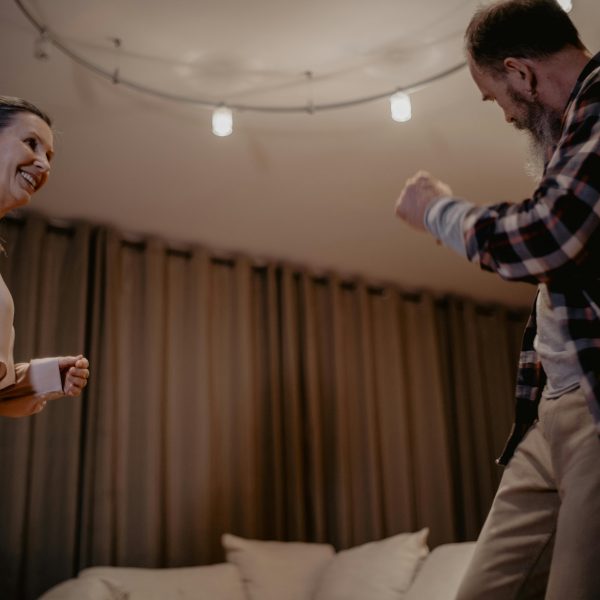Becoming a better listener in your relationship may involve skills like empathizing, serving as a mirror, and paraphrasing. But it’s important to be an effective speaker, too.
Active listening in relationships can be a game changer. But what is a good listener, and how can you connect better to your partner?
The foundation of successful communication is being able to truly listen to each other without “constructing a counter-argument in your head,” says Michael Batshaw, LCSW, a licensed clinical social worker and relationship expert.
Becoming a More Effective Listener
Body Language Matters
To become a better listener in a relationship, it’s helpful to understand all the ways we communicate.
For instance, Orbuch says your body can also show that you’re listening. The way you move, where you look, and how you sit or stand can reveal how good of a listener you are.
If you want your partner to know you’re really paying attention, try these:
- Look into their eyes.
- Lean forward a bit.
- Put away your phone and other distractions.
- Use facial expressions that show you care and understand.
Focus is key
The trick to being a good listener is paying close attention to what the other person is saying. It sounds easy, but for some folks, it can be a bit challenging.
You can begin by getting rid of anything that might take away your attention from your partner, says Orbuch. That means turning off the computer and TV and putting your phone on silent.
No Need for Arguments
Being engaged means more than just replying or building your own argument in response to what your partner says. A key skill in active listening is to stop the inner argument and focus on being a good listener.
Using silence, ignoring, or any other harmful behaviors can also be a form of “silent but.”
“The listener needs to set aside their own emotional reactions and thoughts and really try to understand what the speaker is saying,” explains Robert Solley, PhD, a psychologist in San Francisco who specializes in couples therapy.

Paraphrasing Helps a Lot
Summing up what your partner says ensures that you’re understanding “what your partner means,” says Orbuch. But it’s more than just repeating what they say. For example, if one partner says, “I think the house is messy,” the other shouldn’t just say, “You think the house is messy.” That’s like being married to a parrot, says Heitler.
Paraphrasing can also mean adding your own take on what they said and checking if you got it right with your partner. Asking for more details about the parts you didn’t understand shows that you were actively listening and are now thinking about what was said.
Don’t Jump to Conclusions
Besides understanding what your partner said, it’s also important to know how they feel. Sometimes you might assume your partner is mad at you, but they might actually be excited or annoyed, as Orbuch points out.
You can ask something like, “Did I understand that you feel XYZ because of what happened at the holiday party?” This lets your partner explain how they feel about it.
Empathy is Key
“Understanding the intention is much better than using active listening tricks,” says Batshaw. “Couples who struggle the most don’t try to see things from the other person’s point of view.”
This is where empathy comes in. It’s the ability to imagine what someone else is feeling and going through, even if it’s different from your own experience. It’s a strong way to connect with others.
In the end, the goal of being a good listener is to truly connect with the other person. To do that, you should do more than just hear their words. You should try to understand their feelings and point of view.






